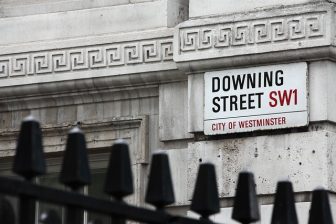 The race to succeed to Boris Johnson as prime minister is hotting up. Tories are rushing to take sides after the shortlist of Conservive party leadership candidates narrowed further yesterday as Rishi Sunak, Liz Truss, Kemi Badenoch, Penny Mordaunt, and Tom Tugendhat set their sights on the top job.
The race to succeed to Boris Johnson as prime minister is hotting up. Tories are rushing to take sides after the shortlist of Conservive party leadership candidates narrowed further yesterday as Rishi Sunak, Liz Truss, Kemi Badenoch, Penny Mordaunt, and Tom Tugendhat set their sights on the top job.
Whoever becomes the next prime minister in about seven weeks times must address the supply crisis in the private rented sector if homeownership ambitions are to become a reality.
That is the warning from the National Residential Landlords Association (NRLA) as new survey data shows that the supply of homes to rent is likely to keep falling over the next year.
According to this research, by BVA-BDRC, 23% of landlords said they plan to cut the number of properties they let in the next 12 months. This is up from 20% a year ago.
In contrast, just 14% say they plan to increase the number of properties they let, unchanged since the same point last year and down four points since Q1 2022.
Against this picture of falling supply, 60% of landlords in England and Wales reported increased demand for rental housing in the second quarter of the year. This represents a large increase on the 39% of landlords who reported increased demand a year ago.
With the demand for rental housing outstripping supply, official data has found that private rents across the UK rose by 2.8% in the year to May this year, the largest annual growth since January 2016.
This latest survey supports recent evidence of the fall in supply from other organisations, including the District Councils Network. Some 76% of the councils it surveyed have warned that a rise in landlords leaving the sector or converting properties to holiday lets has led to longer waits for council housing.
The NRLA is warning that the trend is a direct result of government policy and punitive tax increases since 2015, which have shrunk the private rented sector.
Since the government began to restrict mortgage interest relief for landlords, the number of private rented homes in England has fallen by over a quarter of a million. In stark contrast, those providing holiday lets continue to enjoy full mortgage interest relief creating a distortion in favour of short-term housing over longer term rentals.
The NRLA is calling on the next prime minister to end what it describes as ‘hostility’ to landlords and take steps to encourage investment to meet the rising demand.
Research by Capital Economics suggests that just removing the stamp duty levy on additional properties would see almost 900,000 new private rented homes made available across the UK over the next ten years. This would lead to a £10bn boost to government revenue through increased tax receipts.
Ben Beadle, chief executive of the NRLA, said: “The last six years prove that it was a nonsense to think that cutting the supply of rental housing when demand is so strong would make it easier for those saving for a home of their own.
“Driving rents up just leaves tenants with less cash to save for a deposit.
“We need a strong and vibrant private rental market that meets the needs of those who rely on the flexibility it provides, those who need somewhere to live before becoming homeowners and those for whom the promise of social housing tomorrow provides cold comfort today.
“The next administration needs to reset its plans for the sector.”


Comments are closed.